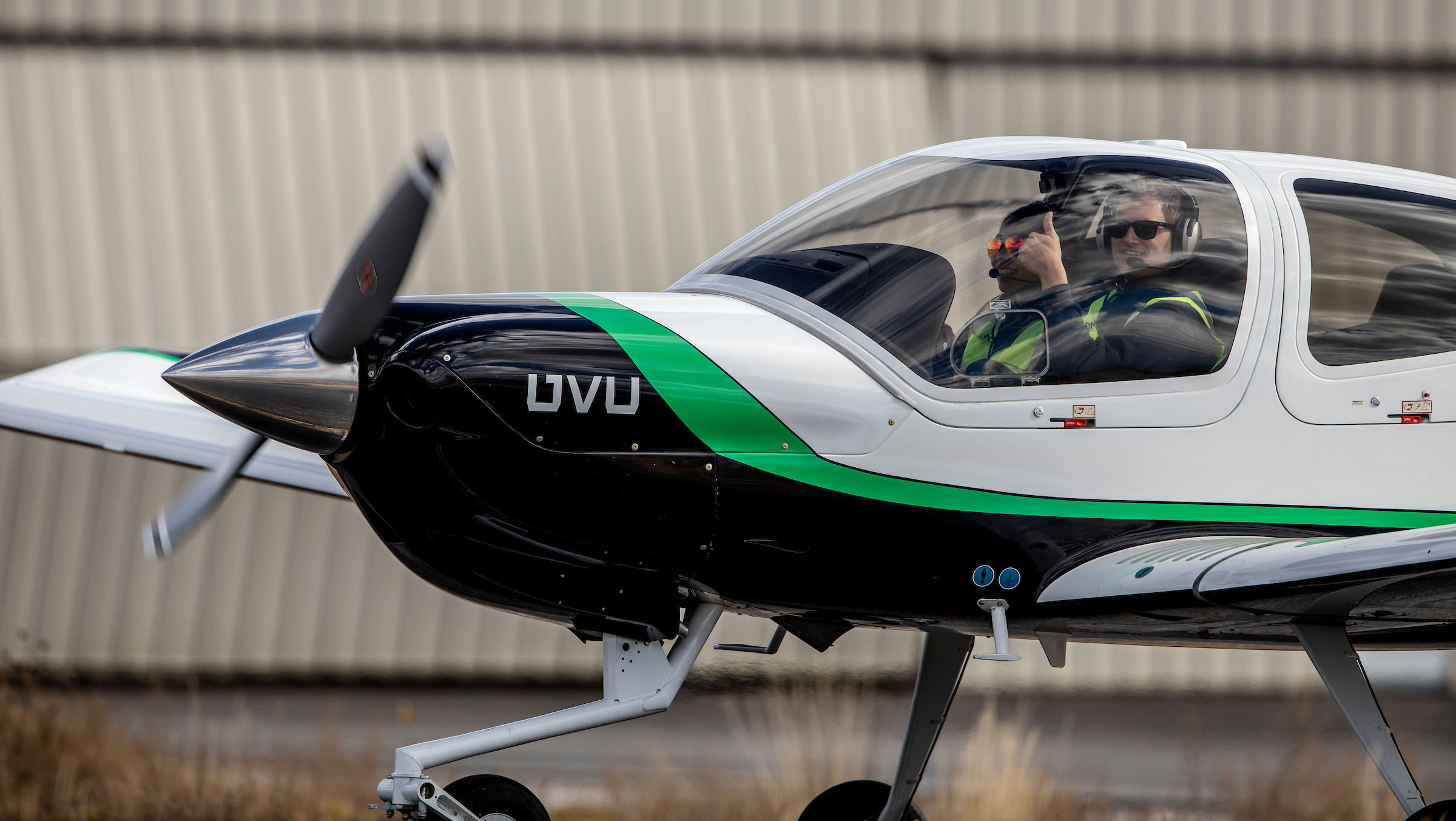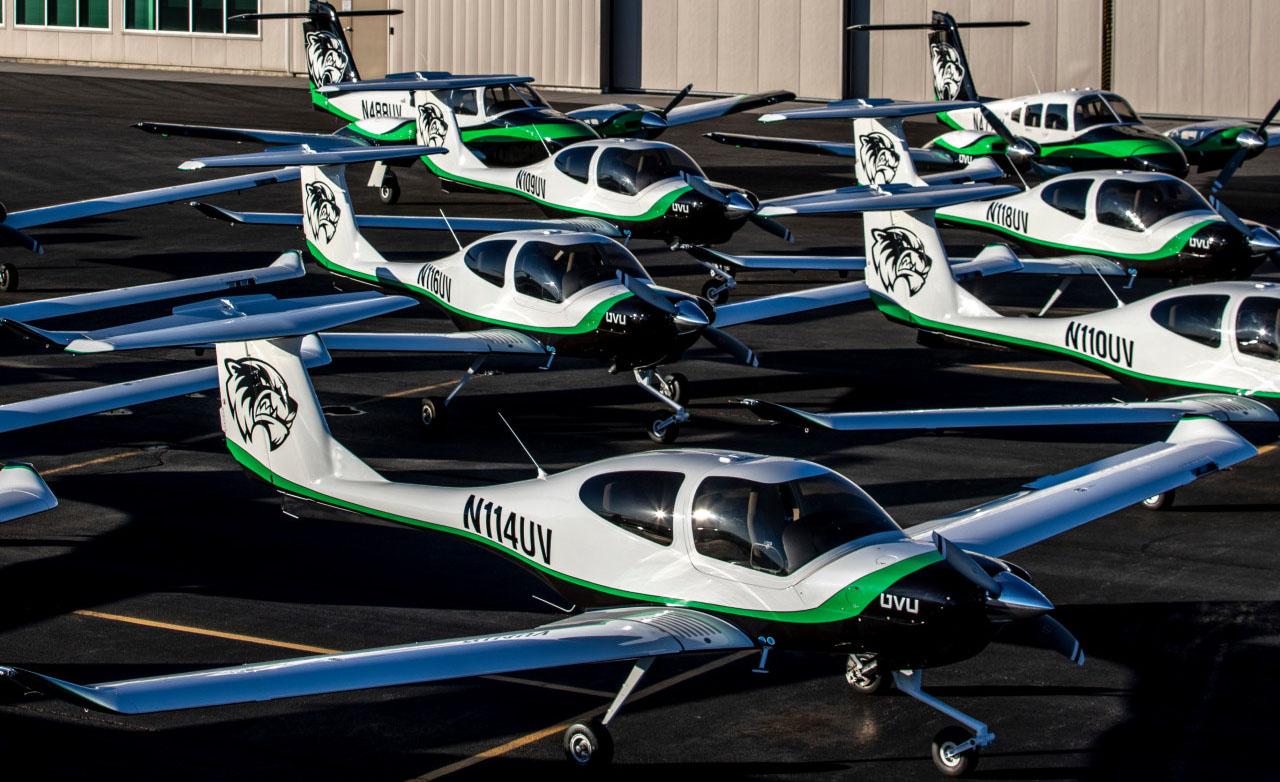UVU has FAA authorization to provide the endorsement for the R-ATP Certificate at 1,000 hours of flight time, when requirements are met.
FAA flight training is required for students pursuing the Bachelor of Science - Professional Pilot or the Associate of Applied Science degree.
In addition to the standard UVU admission requirements, students should expect to complete additional steps to qualify and prepare for flight training. Online students will need to abide by the requirements of their chosen flight school.

The UVU flight training program is rigorous, time-intensive, and requires full commitment each semester. Students must meet the following requirements to be selected for AVSC 1100 – Private Pilot Ground.

Application for each semester opens on the following dates and remains open for 3 weeks:
CE Part 61 Private Ground Transition Process
Concurrent Enrollment (CE) students who complete CE Part 61 Private Ground may be eligible for an exemption from retaking AVSC 1100 Private Pilot Ground School upon entry into UVU's aviation program, provided all eligibility requirements are met.
To qualify for exemption from retaking AVSC 1100, CE students must meet all of the following criteria:
Upon application and acceptance in the UVU flight program, eligible CE students will need to complete a knowledge evaluation and be assessed on their Private Pilot aviation knowledge by an Assistant or Chief Flight Instructor. Students who do not meet the eligibility criteria or who do not demonstrate sufficient knowledge during the evaluation will be required to repeat AVSC 1100, either for credit or as an audit, as determined by the program.
Note: Private Pilot flight training will be conducted in AVSC 1110 under FAA Part 141 standards. Additional ground instruction may be required to meet Part 141 requirements.
CE Students with prior Private flight training outside of UVU
CE students who have completed private flight training outside of UVU may be eligible to receive experiential or transfer credit for the corresponding UVU ground and flight courses, pending verification of training records.
CE students who already hold an FAA Private Pilot Certificate must apply directly for Insrument Flight Training. Admission to Instrument training is not guaranteed and is contingent upon the availability of training slots and program capacity. Due to high demand, entry beyond the Private Pilot certification info the Instrument certification is limited exclusively to CE students.
English is the international language of aviation. Safety demands that all pilots be able to communicate clearly and concisely in English.